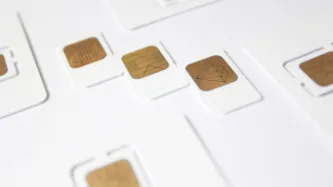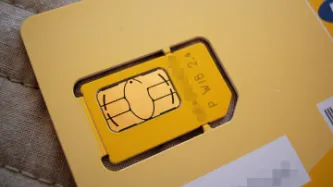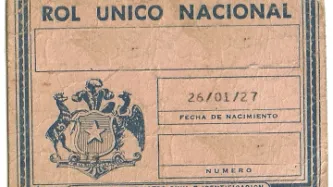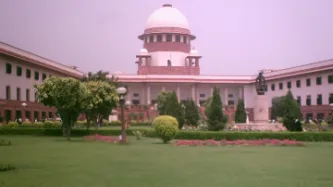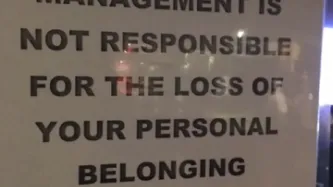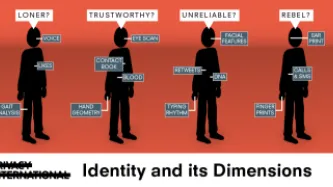Search
Content type: News & Analysis
Photo: The European Union
“Border Externalisation”, the transfer of border controls to foreign countries, has in the last few years become the main instrument through which the European Union seeks to stop migratory flows to Europe. Similar to the strategy being implemented under Trump’s administration, it relies on utilising modern technology, training, and equipping authorities in third countries to export the border far beyond its shores.
It is enabled by the adoption…
Content type: Long Read
Photo: Francesco Bellina
Driven by the need to never again allow organised mass murder of the type inflicted during the Second World War, the European Union has brought its citizens unprecedented levels of peace underpinned by fundamental rights and freedoms.
It plays an instrumental role in protecting people’s privacy around the world; its data protection regulation sets the bar globally, while its courts have been at the forefront of challenges to unlawful government surveillance…
Content type: News & Analysis
Photo by Sharon McCutcheon on Unsplash
In May, the United Nations Special Rapporteur on extreme poverty and human rights, Philip Alston invited all interested governments, civil society organisations, academics, international organisations, activists, corporations and others, to provide written input for his thematic report on the human rights impacts, especially on those living in poverty, of the introduction of digital technologies in the implementation of national social protection…
Content type: News & Analysis
The Irish Data Protection Commissioner has made a ruling on the controversial Public Services Card (PSC) that has described much of what is is done with the card as unlawful. The PSC has proven controversial: introduced in 2012 for welfare claimants, it's use expanded to more and more uses, including its use to get a driving licence or passport. Now, following campaigns from civil liberties organisations, this expansion of use has now been found to be unlawful by Ireland's Data Protection…
Content type: Examples
In February 2019 Gemalto announced it would supply the Uganda Police Force with its Cogent Automated Biometric Identification System and LiveScan technology in order to improve crime-solving. LiveScan enables police to capture biometric data alongside mugshots and biographical data. CABIS speeds up the biometric matching process by mapping distinctive characteristics in fingerprints, palm prints, and facial images. The Ugandan police will also pilot Gemalto's Mobile Biometric Identification…
Content type: Examples
In November 2018, Italy's Data Protection Authority advised against a proposal from the country's Interior Minister, Matteo Salvini, to replace "parent 1 and parent 2" on children's national ID cards with "mother and father". Salvini, who campaigned for election earlier in 2018 on a socially conservative platform, also called for gender-specific terms throughout the application and for applications submitted on behalf of under-14s to include permission from both parents. The DPA argued that the…
Content type: Examples
The Home Office Christmas 2018 announcement of the post-Brexit registration scheme for EU citizens resident in the UK included the note that the data applicants supplied might be shared with other public and private organisations "in the UK and overseas". Basing the refusal on Section 31 of the Freedom of Information Act, the Home Office refused to answer The3Million's FOI request for the identity of those organisations. A clause in the Data Protection Act 2018 exempts the Home Office from…
Content type: Examples
As early as 2008, the Chinese telecommunications giant ZTE began helping Venezuela develop a system similar to the identity system used in China to track social, political, and economic behaviour. By 2018, Venezuela was rolling out its "carnet de la patria", a smart-card "fatherland" ID card that was being increasingly linked to the government-subsidised health, food, and other social programmes most Venezuelans relied on for survival. In 2017, Venezuela hired ZTE to build a comprehensive…
Content type: Examples
After an 18-month investigation involving interviews with 160 life insurance companies, in January 2019 New York Financial Services, the state's top financial regulator, announced it would allow life insurers to use data from social media and other non-traditional sources to set premium rates for its customers. Insurers will be required to demonstrate that their use of the information doesn't unfairly discriminate against specific customers. New York is the first state to issue specific…
Content type: Examples
In December 2018, Facebook provided an update on the civil rights audit it asked civil rights leader Laura Murphy to undertake in May. Based on advice Murphy culled from 90 civil society organisations, Facebook said it had expanded its policy prohibiting voter suppression, updated its policy to ban misrepresentation about how to vote, begun sending information about voting to third-party fact checkers for review, and was ramping up efforts to encourage voter registration and engagement.
https…
Content type: Examples
In February 2019, the World Food Programme, a United Nations aid agency, announced a five-year, $45 million partnership with the data analytics company Palantir. WFP, the world's largest humanitarian organisation focusing on hunger and food security, hoped that Palantir, better known for partnering with police and surveillance agencies, could help analyse large amounts of data to create new insights from the data WFP collects from the 90 million people in 80 countries to whom it distributes 3…
Content type: Long Read
IMAGE SOURCE: "My Phone Bought This" by oliver t is licensed under CC BY-NC-ND 4.0.
LAST UPDATE: 16th May 2022.
Mandatory SIM card registration laws require people to provide personal information, including a valid ID or even their biometrics, as a condition for purchasing or activating a SIM card. Such a requirement allows the state to identify the owner of a SIM card and infer who is most likely making a call or sending a message at any given time.
SIM card…
Content type: Examples
In February 2019, an anonymous tip-off to Computer Sweden revealed that a database containing recordings of 170,000 hours of calls made to the Vårdguiden 1177 non-emergency healthcare advice line was left without encryption or password protection on an open web server provided by Voice Integrate Nordic AB. After the breach was discovered, MedHelp, which runs the 1177 service, shut the server down and found that 55 call files had been illegally downloaded from seven different IP addresses. Nine…
Content type: Examples
In Ireland benefits claimants are expected to register for a Public Services Card (PSC) in order to access benefits. PSC users are expected to have their photographs taken in department offices, which is then digitally captured along with their signature. While this card was originally created to prevent benefits fraud – by insuring someone could not register twice to claim benefits – it is increasingly being used as a de facto form of ID and citizens have been apply for PSC even when they do…
Content type: Examples
Cases of people being denied healthcare as they fail to provide an Aadhaar number have already started emerging. A 28-year old domestic worker, for instance, had to be hospitalised for a blood transfusion after she had an abortion with an unqualified local physician. She had been denied an abortion, to which she was legally entitled, from a reputable government hospital, as she did not have an Aadhaar card. Following this case, 52 public health organisations and individuals issued a statement…
Content type: Examples
While not currently mandatory to access healthcare services, Aadhaar is however increasingly used in the health sector as well. In 2018, the health ministry had to issue a statement to clarify that Aadhaar was “desirable” but not a must to access a 5 rupee insurance cover for hospitalisation under the Ayushman Bharat scheme.
https://www.hindustantimes.com/india-news/aadhaar-desirable-not-must-for-rs-5-lakh-healthcare-scheme-says-centre/story-mvQwqSKzDFYE0rhxqLFbLO.html
Author: Rhythma Kaul…
Content type: Examples
In India, one of the reasons the Aadhaar ID system has been increasingly widely used is that it is mandatory for much India’s benefits system. Government subsidies are now processed through under the Direct Benefit Transfer scheme, which requires citizens to have a bank account and to insure that their Aadhaar number is linked to their bank account so they can receive subsidies.
https://www.paisabazaar.com/aadhar-card/want-to-avail-government-subsidies-provide-aadhaar-and-get-it-easily/…
Content type: Examples
Research from the Brennan Center shows minorities are primarily affected by new laws that restrict citizens access to voting through ID requirement, increased distance to polling station, inconvenient opening hours and hidden costs.
https://www.theguardian.com/world/2012/jul/18/voter-id-poor-black-americans
Writer: Ed Pilkington
Publication: The Guardian
Content type: News & Analysis
Creative Commons Photo Credit: Source
In this first episode of the Gender and Privacy Series, we go to Manila in the Philippines to meet two transgender right activists - Naomi Fontanos and AR Arcon. We discuss what the right to privacy means to them and their fight against the government's plan to deploy an ID card system.
Listen to the podcast here.
Content type: Long Read
The Privacy International Network is celebrating Data Privacy Week, where we’ll be talking about how trends in surveillance and data exploitation are increasingly affecting our right to privacy. Join the conversation on Twitter using #dataprivacyweek.
It is often communities who are already the most marginalised who are at risk because of the privacy invasions of data-intensive systems. Across the globe, we see the dangers of identity systems; the harms of online violence against women and the…
Content type: Explainer
Photo credit: warrenski
Mandatory SIM card registration eradicates the potential for anonymity of communications, enables location-tracking, and simplifies communications surveillance and interception. By facilitating the creation of an extensive database of user information, it places individuals at risk of being tracked or targeted, and having their private information misused. In the absence of comprehensive data protection legislation and judicial oversight, SIM users' information can be…
Content type: Long Read
Photo credit: Francisco Javier Argel
Questions of identification and ID, with their associated privacy risks, are only increasing. There are multiple dimensions to understanding the impact of ID and identification; a key one is to understand how it can exclude. This is why Privacy International is conducting research to explore this important and underreported aspect.
Read our case studies: Carolina and Iliana.
In the identity discourse, identity is often closely linked to themes of “…
Content type: News & Analysis
Photo Credit: Marion S. Trikosko
This month, the World Bank's Identity for Development (ID4D) initiative is launching its inaugural "Mission Billion Challenge", a competition designed to promote innovation in the identity space with the inaugural question: "How can digital identification systems in developing countries be designed to protect people’s privacy and provide them with greater control over their personal data?” But make no mistake: introducing "privacy by design" does…
Content type: Long Read
Image attribution: By Legaleagle86 at en.wikipedia, CC BY-SA 3.0.
In a long-anticipated judgment, the Indian Supreme Court has ruled that India's controversial identification system Aadhaar is Constitutional. They based their conclusion on notes that there are sufficient measures in place to protect data, and that it is difficult to undertake surveillance of citizens on the basis of Aadhaar.
But there is some good in this ruling. The court has demanded that the Government introduce…
Content type: Examples
In December 2017, it was revealed that the large telco Bharti Airtel made use of Aadhaar-linked eKYC (electronic Know Your Customer) to open bank accounts for their customers without their knowledge or consent. eKYC is a way of using data in the UIDAI database as part of the verification process, which Airtel made use of for the issuing of SIM cards, and also secretly opened bank accounts with their Airtel Payments Bank. More than 2 million accounts could have been opened, receiving more than…
Content type: Long Read
Who are you? The Challenges of Identity and Identification
“Identity” is a word that covers an incredible range of contested, deeply personal and highly politicised questions. These range from the political and the sociological, through to the psychological and philosophical. A question such as “who are you?” can elicit a multiplicity of responses, none of which are straightforward, are sometimes highly contextual, and are often deeply contested.
However, there is something of an attempt to…
Content type: Long Read
The Sustainable Development Goals (SDGs) are the United Nations-led initiative to define the development agenda. Building on the eight Millennium Development Goals, the SDG’s 17 goals – and the 169 targets – serve as an opportunity to tackle many of the most pressing issues in the world today. The SDGs are also explicitly grounded in human rights. Goal 16 on “peace, justice, and sustainable institutions” aims to “Promote peaceful and inclusive societies for sustainable development, provide…
Content type: Examples
In February 2018 the Home Office gave the Yorkshire Police 250 scanners that use a smartphone app to run mobile fingerprint checks against the UK's criminal fingerprint and biometrics database (IDENT1) and the Immigration and Asylum Biometrics System (IABS). The app was simultaneously made available to all 5,500 frontline Yorkshire Police officers, with a plan to roll the service out to another 20 forces by the end of 2018. Police are able to use the scanners when people they stop on the street…
Content type: Examples
In 2012, London Royal Free, Barnet, and Chase Farm hospitals agreed to provide Google's DeepMind subsidiary with access to an estimated 1.6 million NHS patient records, including full names and medical histories. The company claimed the information, which would remain encrypted so that employees could not identify individual patients, would be used to develop a system for flagging patients at risk of acute kidney injuries, a major reason why people need emergency care. Privacy campaigners…
Content type: Impact Case Study
What is the problem
For over two decades we have been documenting an alarming use and spread of surveillance. It is no longer just the wars on terror or drugs or migration that is driving this trend. The management of health crises and distribution of welfare regularly are among others being used to justify this turn to increasingly invasive forms of surveillance. From country to country we see the same ideas and the same profiteers expanding their reach.
When we first released our report on…




